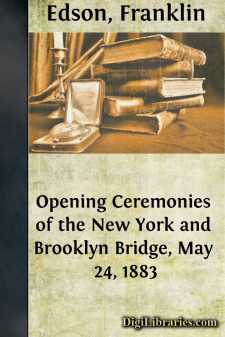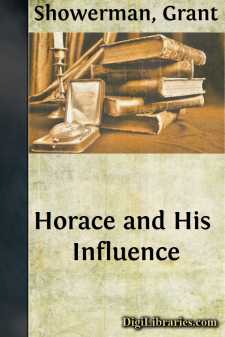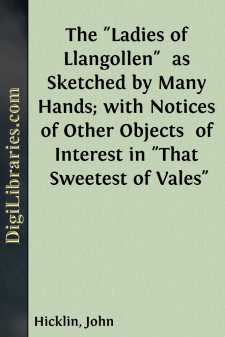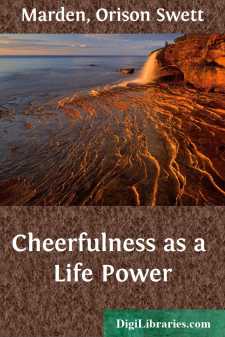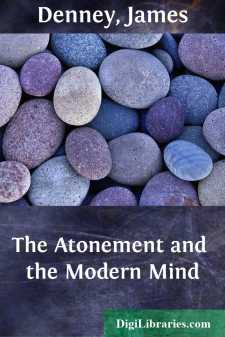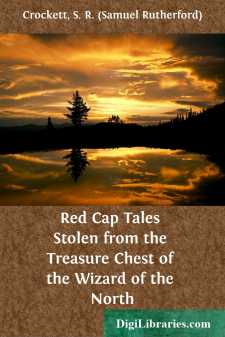Non-Classifiable
- Non-Classifiable 1768
Non-Classifiable Books
Sort by:
by:
Franklin Edson
INTRODUCTORY. The New York and Brooklyn Bridge was formally opened on Thursday, May 24th, 1883, with befitting pomp and ceremonial, in the presence of the largest multitude that ever gathered in the two cities. From the announcement by the Trustees of the date which was to mark the turning-over of the work to the public, it was evident that the popular demonstration would be upon a scale commensurate...
more...
by:
Grant Showerman
INTRODUCTION: THE DYNAMISMOF THE FEW To those who stand in the midst of times and attempt to grasp their meaning, civilization often seems hopelessly complicated. The myriad and mysterious interthreading of motive and action, of cause and effect, presents to the near vision no semblance of a pattern, and the whole web is so confused and meaningless that the mind grows to doubt the presence of design,...
more...
Introduction Among the best liked stories of five or six hundred years ago were those which told of chivalrous deeds—of joust and tourney and knightly adventure. To be sure, these stories were not set forth in printed books, for there were no printed books as early as the times of the first three King Edwards, and few people could have read them if there had been any. But children and grown people...
more...
by:
John Hicklin
THE LADIES OF LLANGOLLEN. From the early age of Cambrian history, when the peerless beauty of the high-born Myfanwy Fechan awoke the passion and the poesy of her admiring bard, Howel ap Einion Llygliw, down to the modern days of the more humble, but not less renowned maiden, “Sweet Jenny Jones;” Llangollen, “that sweetest of vales,” seems to have been associated with recollections of tender and...
more...
by:
James Milne
I PERSONAL AND PARTICULAR 'Perhaps there is something in old age that likes to have a young mind clinging to it.' Sir George Grey was speaking of the famous people he had known in his youth long, long before. He struck an inner note of nature which is surely equally valid the other way? Whenever I think of the remark, I am inclined to discover one reason why I came to know Sir George so well....
more...
CHEERFULNESS AS A LIFE POWER. I. WHAT VANDERBILT PAID FOR TWELVE LAUGHS. William K. Vanderbilt, when he last visited Constantinople, one day invited Coquelin the elder, so celebrated for his powers as a mimic, who happened to be in the city at the time, to give a private recital on board his yacht, lying in the Bosphorus. Coquelin spoke three of his monologues. A few days afterwards Coquelin received...
more...
by:
James Denney
PRELIMINARY DEFINITION OF THE SUBJECT It will be admitted by most Christians that if the Atonement, quite apart from precise definitions of it, is anything to the mind, it is everything. It is the most profound of all truths, and the most recreative. It determines more than anything else our conceptions of God, of man, of history, and even of nature; it determines them, for we must bring them all in...
more...
CERTAIN SMALL PHARAOHS THAT KNEW NOT JOSEPH It was all Sweetheart's fault, and this is how it came about. She and I were at Dryburgh Abbey, sitting quietly on a rustic seat, and looking toward the aisle in which slept the Great Dead. The long expected had happened, and we had made pilgrimage to our Mecca. Yet, in spite of the still beauty of the June day, I could see that a shadow lay upon our...
more...
Would it be an unlicensed trespass of the imagination to conceive that on the night preceding the day of which you now commemorate the fiftieth anniversary—on the night preceding that thirtieth of April, 1789, when from the balcony of your city hall the chancellor of the State of New York administered to George Washington the solemn oath faithfully to execute the office of President of the United...
more...
A NIGHT IN THE SNOW. The mountains of South-West Shropshire are less known to the lovers of fine scenery than their great beauty deserves, though they are familiar to most geologists as the typical region of the lowest fossil-bearing deposits. Of this group of hills the highest is the Long Mynd, a mountain district of very remarkable character, and many miles in extent. It is about ten miles long,...
more...


